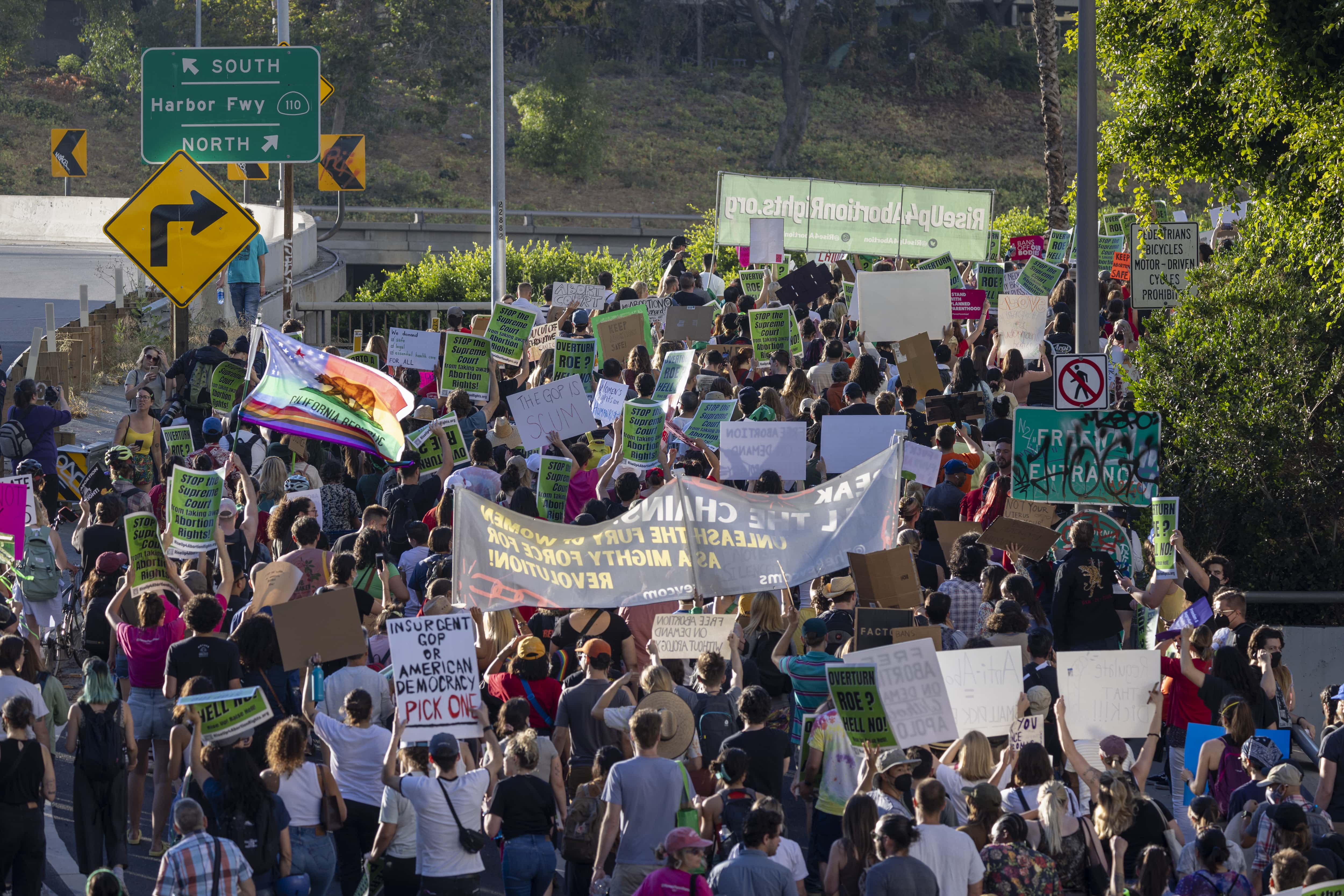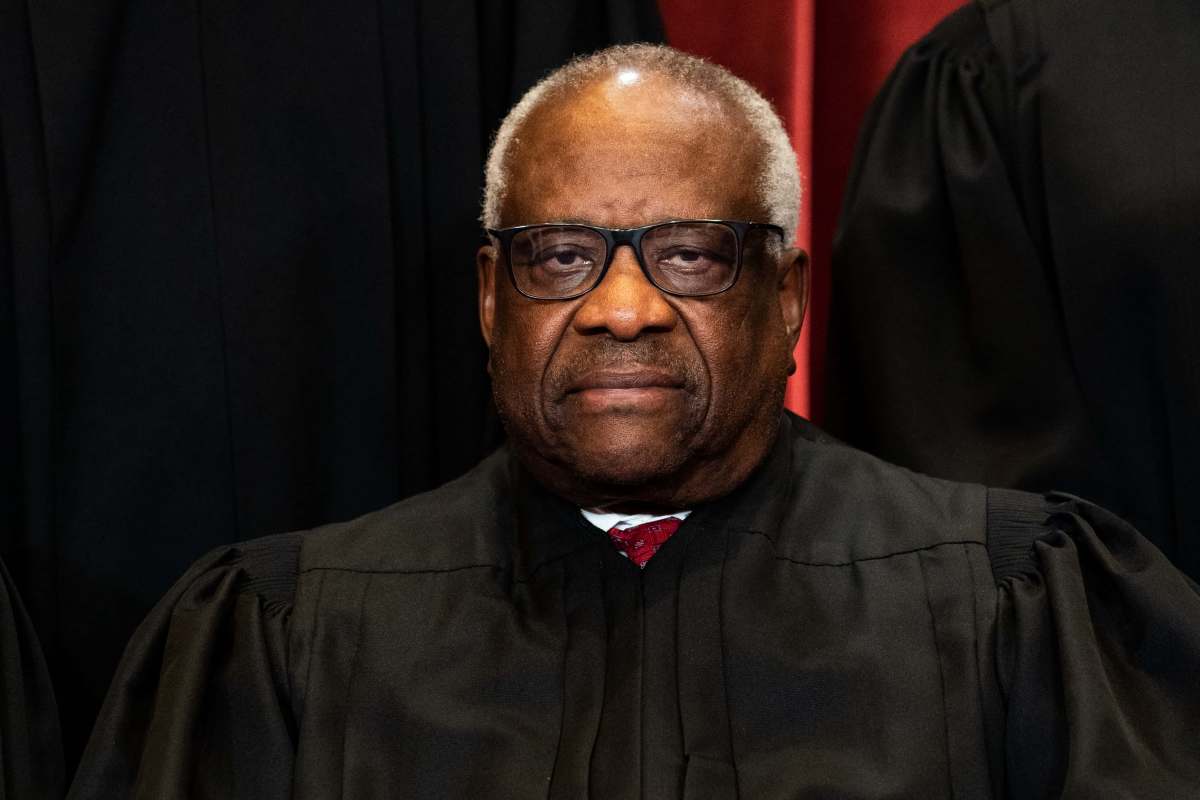What is Due Process Clause? Here's what other freedoms could go after abortion rights ruling

WASHINGTON: US Supreme Court's decision to overturn Roe v Wade which established the right to an abortion, now might give way to end other freedoms as well including gay marriage, access to contraception, and same-sex relationships according to the liberals. After the decision came, many Americans reacted to the decision to reverse Roe v Wade while a few sections of the citizens were terrified by the thought- of what might be next?
Following the decision given on Friday, June 24, Justice Clarence Thomas called for his colleagues to re-examine and potentially overturn rulings that protect gay marriage and access to birth control. “In future cases, we should reconsider all of this court’s substantive due process precedents, including Griswold, Lawrence, and Obergefell,” Thomas wrote in his concurring opinion to the ruling on Roe. All the other justices, however, disagreed. The three liberal justices who dissented in the case warned it could be a sign of things to come. "No one should be confident that this majority is done with its work," wrote Justices Sonia Sotomayor, Elena Kagan, and Stephen G Breyer in their dissent.
RELATED ARTICLES
SCOTUS's decision to overturn Roe v Wade slammed as 'FAR-RIGHT EXTREMISM'
Here's why Donald Trump thinks Roe v Wade overturn is 'bad' for 2024 elections
The 74-year-old justice was referring to a 1965 ruling, Griswold v Connecticut, that allows married couples to access birth control. He’s also referencing a 2003 ruling, Lawrence v Texas, that forbids states from outlawing consensual gay sex, and Obergefell v Hodges, a 2015 decision that established a constitutional right to same-sex marriage. Substantive due process refers to the notion that people have fundamental rights that aren’t specifically established in the Constitution.

Writing for the majority, Justice Samuel Alito noted, "The Court emphasizes that this decision concerns the constitutional right to abortion and no other right. Nothing in this opinion should be understood to cast doubt on precedents that do not concern abortion." "Rights regarding contraception and same-sex relationships are inherently different from the right to abortion," Alito wrote, "because the latter (as we have stressed) uniquely involves what Roe and Casey termed 'potential life." Planned Parenthood v Casey, in 1992 upheld the right to abortion.
Chief Justice John Roberts supported the court's decision in part, but said overturning Roe and Casey, which will leave abortion restrictions in the hands of state officials, goes too far. In his own concurring opinion, Roberts wrote, "I emphasize what the Court today states: Overruling Roe does not mean the overruling of those precedents, and does not threaten or cast doubt on those precedents."
Thomas acknowledged that the Dobbs v Jackson Women’s Health Organization decision does not directly affect any rights aside from federal abortion access. But he urged the court to apply the same “Due Process Clause” logic to other substantive landmark cases.
What is Due Process Clause?
The Due Process Clause of the Fourteenth Amendment is like a similar provision in the Fifth Amendment, which only restricts the federal government. It states that no person shall be “deprived of life, liberty, or property without due process of law.” Usually, “due process” refers to fair procedures. In Roe v Wade (1973), the Court ruled that this right to privacy included a woman's decision to have an abortion.

“Because any substantive due process decision is ‘demonstrably erroneous,’ we have a duty to ‘correct the error’ established in those precedents,” Thomas wrote. Later Friday, June 24, New York City Mayor Eric Adams ripped Thomas for his opinion, saying: “I believe this is a real plan to — look at all the things that they’ve been waiting to dismantle, taking place.” “If we ignore that and believe this is just two issues that were handed out, this is not an overall plan, that’s a big mistake,” Adams added. “If we ignore what happened to women today, it could happen to members of the LGBTQ+ community tomorrow, immigrants, voting rights, all these issues are in play.”
Planned Parenthood president and CEO Alexis McGill Johnson also warned that other reversals on federal protections for reproductive services and relationships could follow. “Make no mistake: if they can take away the right to abortion, a right we’ve held for nearly 50 years, they won’t stop here. All of our freedoms are on the line,” she said. Johnson called the ruling “horrific” in a statement, noting that marginalized communities, including people with disabilities, those living in rural areas, and low-income families will experience the most dangerous consequences.
“The Supreme Court has now officially given politicians permission to control what we do with our bodies, deciding that we can no longer be trusted to determine the course for our own lives", Johnson said. Planned Parenthood is the leading provider of sexual and reproductive health care in the US, including elective abortion care.
Pro-abortion rights advocates descended on Thomas’s home in Virginia on Friday, June 24, night to protest the high court’s decision to overturn Roe v Wade, which was announced hours earlier. Protesters showed up with signs and began chanting. Members of the crowd called the justice's wife, Ginni, an "insurrectionist," likely referring to her correspondence supporting efforts to challenge the results of the 2020 election, and others yelled, "Off with their d***s!" Roughly 30 protesters had already arrived outside the home as of 8 pm, with a similar number of journalists. The group erupted in chants and songs, crying out "No privacy for us, no peace for you!" and "Ginni Thomas is an insurrectionist!".The other planned protests for the weekend are targeted at the homes of Justices Brett Kavanaugh, Amy Coney Barrett, Samuel Alito, John Roberts, and Neil Gorsuch.
Protester sign says “off with their dicks” pic.twitter.com/tbEkrWS6TM
— Jeremiah Poff (@JJ_Poff) June 24, 2022










